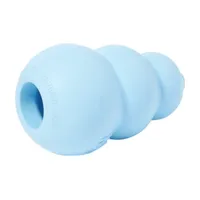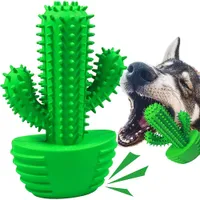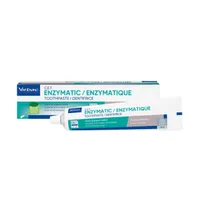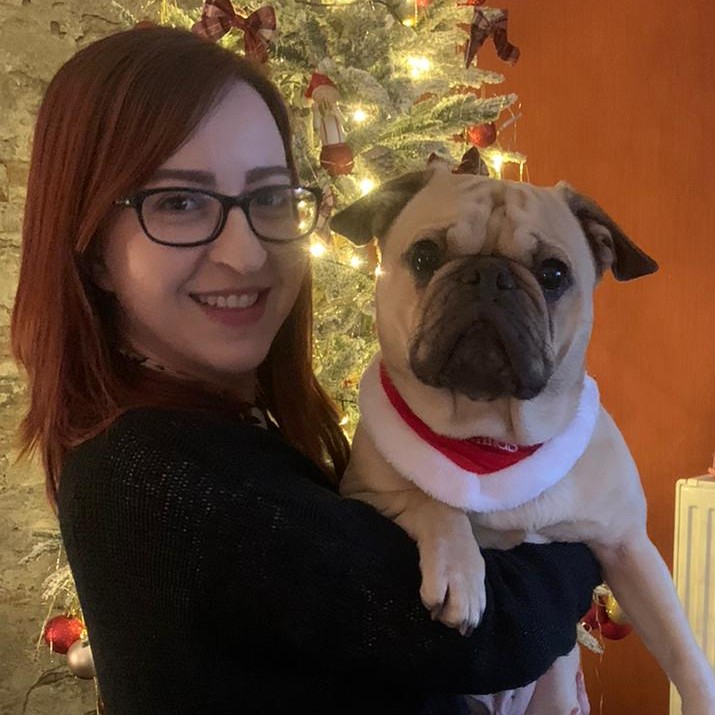Vet shares three teething puppy tips (and number two is a total lifesaver!)
Looking for teething puppy tips? Our expert vet has you covered.
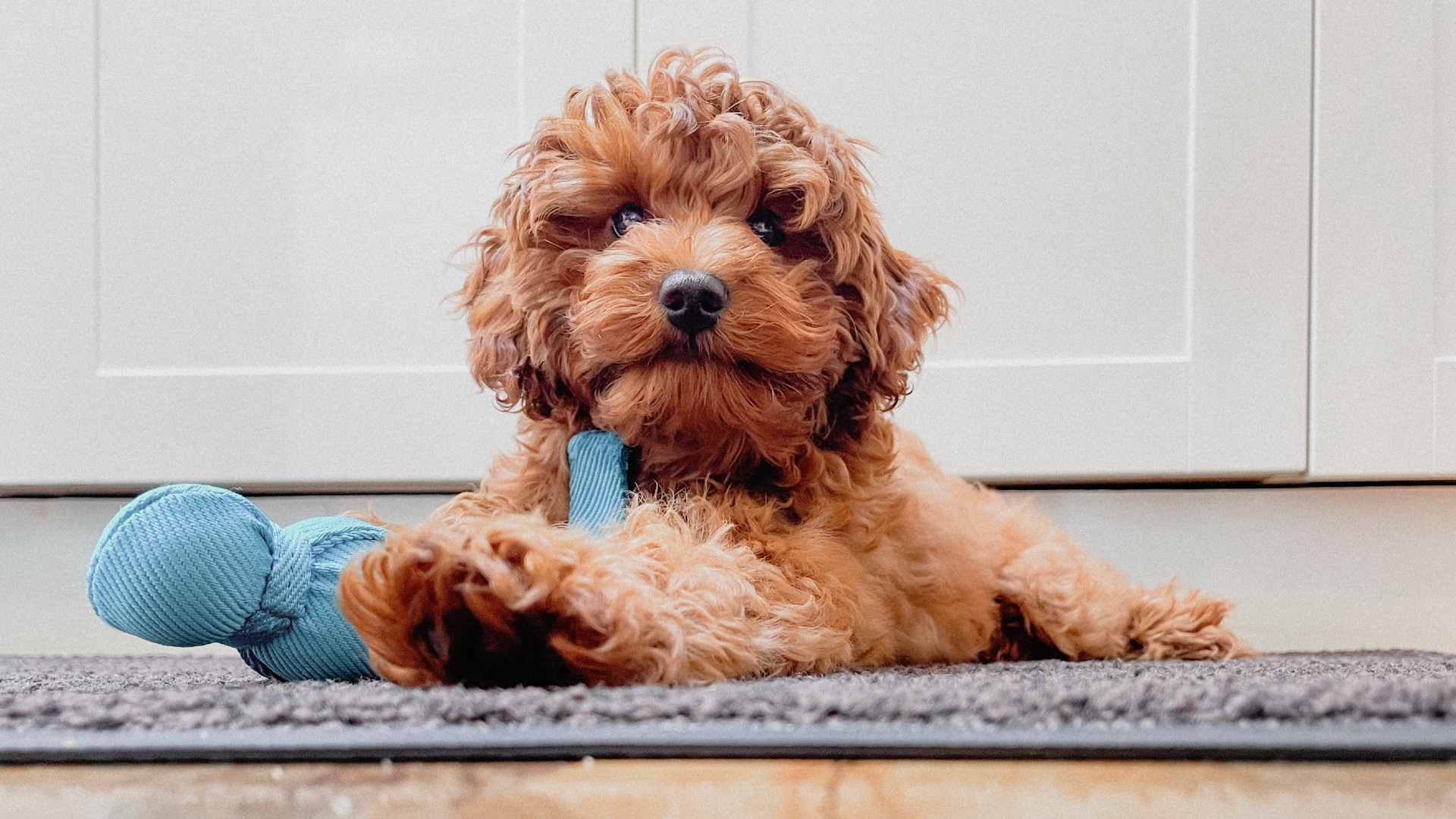
If you’re on the hunt for teething puppy tips, you’ve come to the right place. While welcoming a new fur friend into your family can be a super exciting time, there’s no denying that the puppy teething phase can bring with it a few challenges.
That’s why we spoke with expert vet Dr. Hannah Godfrey to get her advice on some simple things you can do to help make the process a whole lot easier. Puppy-proofing your home, for example, can be a great way to protect your belongings, while investing in the best puppy teething toys can help to soothe sore gums.
Below, Dr. Godfrey goes into more depth about how to ensure the puppy teething phase is as smooth as possible for you and your beloved bundle of fluff. Plus, we explain more about puppy teething, including when it starts, what to do about biting, mouthing and nipping, and how to care for your dog’s new adult teeth.
Puppy teething tips
1. Puppy proof your home
"If you know that your pup is being particularly destructive due to teething, it’s best to keep anything important or easily damaged out of the way," says Dr. Godfrey. "Perhaps even more important, though, is to keep your puppy safe by keeping items that could be dangerous or cause injury out of their reach.
For example, it’s sensible to prevent your pup from reaching electrical cables, medications, or cleaning chemicals. Fabric items like clothing, cushion covers, and dog beds can cause blockages or damage to your dog’s gut, so keeping them out of reach until your pup’s teething settles will help to keep them safe."
Check out our guide to how to puppy proof your house and yard for more tips and tricks.
Get the best advice, tips and top tech for your beloved Pets
2. Provide chew toys
"One of the best ways to help with destructive behavior like chewing furniture is to provide a safe alternative," explains Dr. Godfrey. "Your pup is chewing because their gums are sore or uncomfortable, and chewing relieves this. Dog chew toys, like Kongs and other durable chew toys designed for puppies, are a great way to redirect the behavior and help your puppy learn."
This durable teething toy is perfect for pups who will chew anything they can get their paws on. Our tester Sophie gave it to her dog, Wallie who also enjoyed playing hide and seek with it. She notes that it’s great for tiring out an energetic pup and is easy to clean in the dishwasher.
3. Use cold chews
"Just like babies might enjoy a cool teething ring that’s been in the fridge or freezer, puppies can also get relief from teething with cold chew toys," Dr. Godfrey says. "What’s more, you’ll get the added benefit that any food-stuffed chew toys, like Kongs, will be harder for your pup to empty, meaning they’ll be occupied and out of mischief for longer! If you use the freezer, make sure the toy is suitable for freezing, and leave it out for a couple of minutes before giving it to your pup."
Whatever you choose to try, be sure to always supervise your puppy during playtime as no chew toy is 100% safe for every puppy or dog to be left alone with. Chew toys should also be checked regularly to ensure they aren’t falling apart- your pooch shouldn’t be able to bite chunks off of them or be able to remove any fibers or stuffing, which could be extremely hazardous if ingested.
Despite dogs commonly chasing after and carrying sticks, these can also be a danger to puppies who often like to chew on them, so try not to encourage this behavior.
To learn more, we have a full guide on how to stop a puppy chewing.
Apply dog toothpaste to this chew toy and get your dog to chew it off. The bristles will help clean their teeth and your dog will love the challenge.
When do puppies start teething?
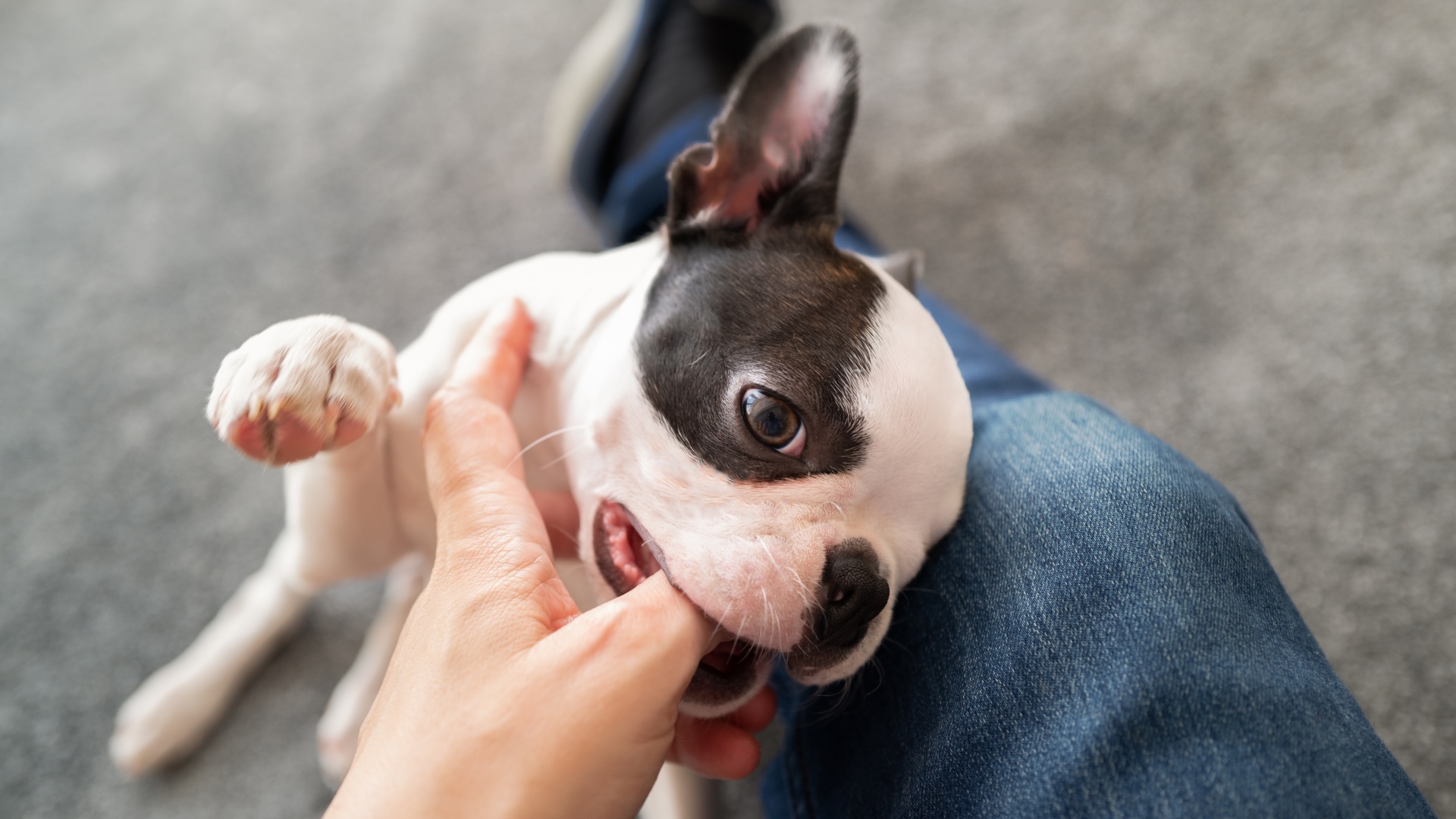
Bringing home a puppy can be such an exciting time, but there's certainly lots to get your head around. If you've just welcomed a new bundle of fluff into your family you may be wondering when your little one will start teething.
While the start of the teething phase can vary slightly from puppy to puppy, Dr. Godfrey says there tends to be a rough timeline that the majority of puppies follow.
"Most puppies start losing their baby teeth around five months old. However, anything between four and six months is normal," she explains.
"If you haven’t noticed your pup showing signs of teething, don’t worry – it’s not always obvious. If you check in their mouth, you might find that they already have a lot of their adult teeth or that they’ve finished teething completely!"
Is it normal for puppies to be destructive when they’re teething?
Many dog owners get concerned about their puppies behavior during the teething phase, but Dr. Godfrey assures us that some degree of destructive behavior is completely normal when a puppy is teething.
"You might find that your puppy nibbles your hands or feet more than normal, chew skirting boards or door frames, or even destroy their bed (or yours!)," she says.
"It’s common for pet parents to mention concerns to me about their puppy biting or chewing, but thankfully this behavior doesn’t tend to last and can be discouraged using a few simple techniques."
How to stop a puppy nipping and biting
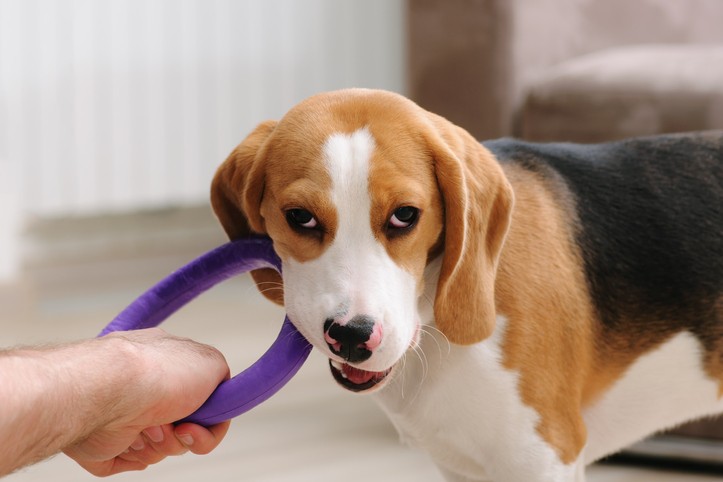
Wondering how to stop a puppy biting, mouthing or nipping? Teething is a common cause of these sorts of behaviours, but thankfully there are a few things you can do to put a stop to it.
1. Notice the difference
Dogs mouthing is often how they play together, but regardless, stay vigilant. A playful nibble can easily turn into a bite.
2. React
Don't ignore biting; doing so may give puppies the impression that it's an acceptable form of behavior. Instead, treat it as an opportunity to impart some training. As soon as they nip your hand, end playtime in a calm but firm manner, and walk away. This will teach them that nipping means the fun being over.
One other method is to let out a clear, high-pitched “OW” if they bite you, followed by a reward for backing away (avoid this if it causes your dog to become worked up, excitable, or highly distressed).
3. Distract
If the above methods don't work, redirect their attention to something else. If they’re feeling playful, give them a chew toy, or go outside for a walk. Alternatively, use this time to teach them new commands like ‘leave it’ or ‘let go’.
Dog dental care
When all of your puppy’s adult teeth have grown, you’ll want to ensure they remain clean and healthy. That’s why it’s important that you help them get used to having their mouth and teeth touched.
There are a number of dog-friendly toothbrushes and toothpastes available to buy, but if you’re unsure which one would be right for your canine, get in touch with your vet. You should never use human toothpaste, as it could make them ill. Check out our guides to the best dog toothpaste and the best dog toothbrushes for a great selection of safe, vet-approved products.
Even though your puppy may no longer be teething by this point, dogs will always love to chew. Keep giving your dog suitable chew toys and edible chews will continue to satisfy their natural behavior, keep their teeth clean, and protect you and your non-chewable household items!
Virbac CET Enzymatic Toothpaste
Formulated using an exclusive dual-enzyme system, this toothpaste reduces plaque and freshens the breath. Because it contains no foaming agents, it's safe for your pet to swallow and it comes in a choice of five flavors.
If you’re thinking, ‘Why does my puppy eat everything outside?’ This feature explains it all and how to stop them. We asked an expert everything you need to know about dog play biting.

Dr Hannah Godfrey studied Veterinary Medicine at the Royal Veterinary College London. After graduating in 2011, Dr Godfrey went on to become a veterinary surgeon, conducting surgery consultations on a range of animals at a small independent practice in Cardiff, South Wales, UK. Dr Godfrey has a strong interest in soft tissue surgery. When she’s not helping animals back on their feet, Dr Godfrey writes a number of veterinary and animal-focused articles.
Chloe is a freelance writer, editor, and proofreader, who has more than ten years’ experience in creating animal-focussed content. From National Geographic to Animal Planet, Chloe’s passion for creating fact-filled features all about wildlife and the environment is evident. But it’s not just wild animals that Chloe’s fascinated by. Having written more than 75 articles for PetsRadar - and having her very own four-legged friend by her side - it’s no wonder that her love of dogs (and, of course, cats) has grown exponentially.
Her website, www.chloemaywrites.com, and social media pages - @ChloeMayWrites on Instagram, Facebook, and Twitter - showcase her knowledge through daily facts and trivia tidbits. For example, did you know that snails have teeth?!
